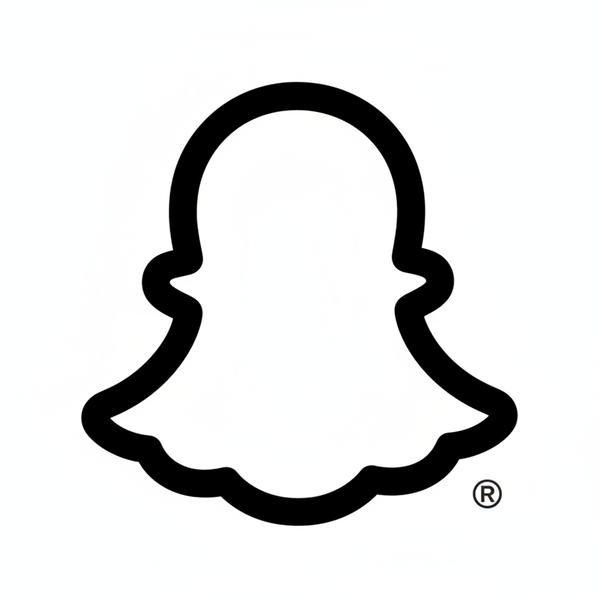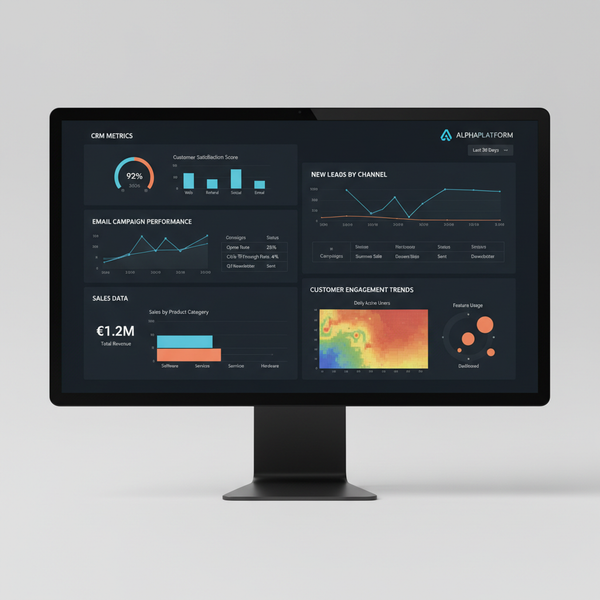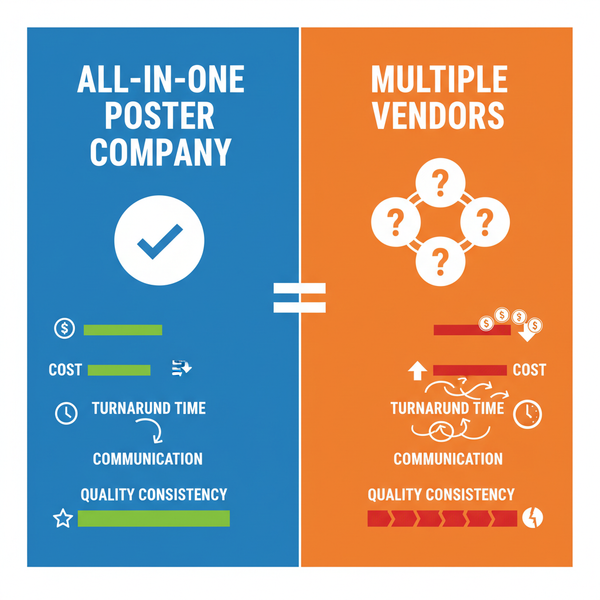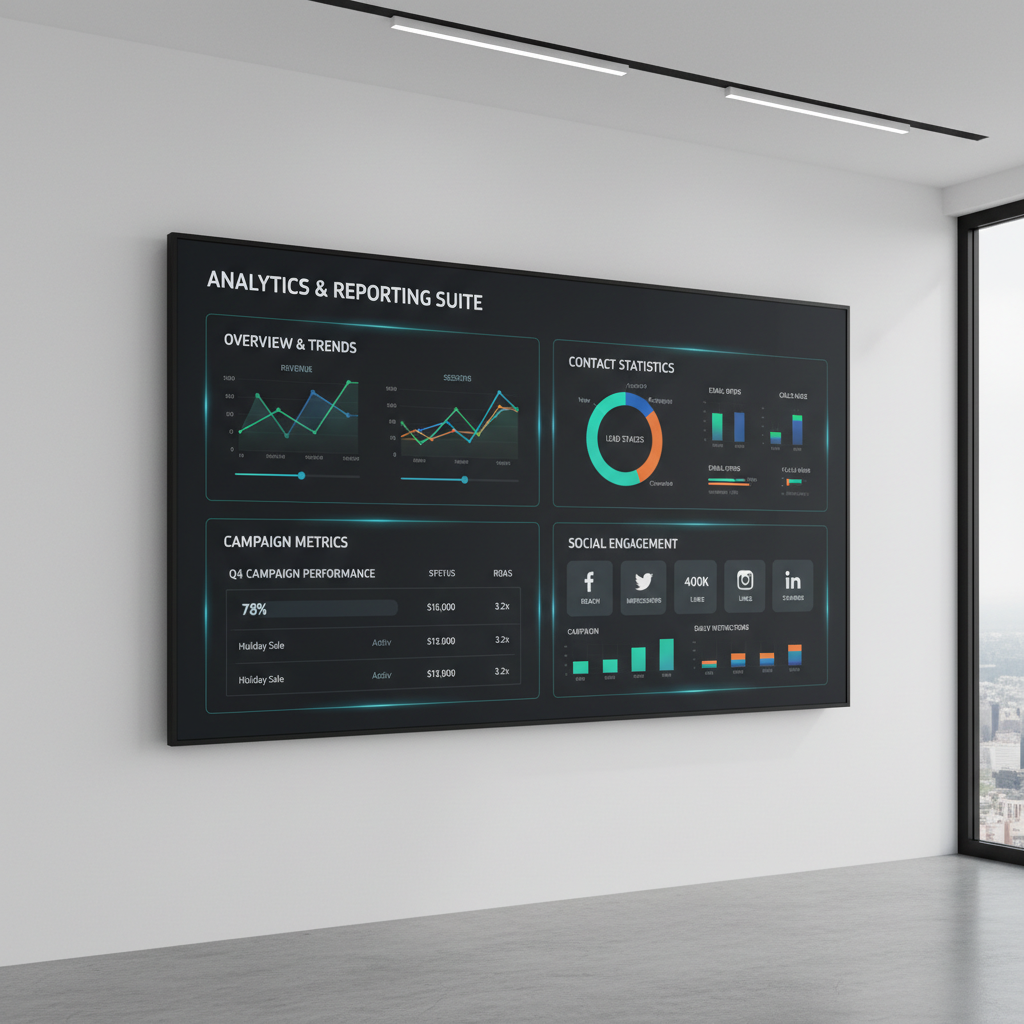What Does DM on Facebook Mean and How to Use It
Learn what a DM on Facebook is, how Messenger powers it, the difference between DM and PM, and tips for sending secure private messages.
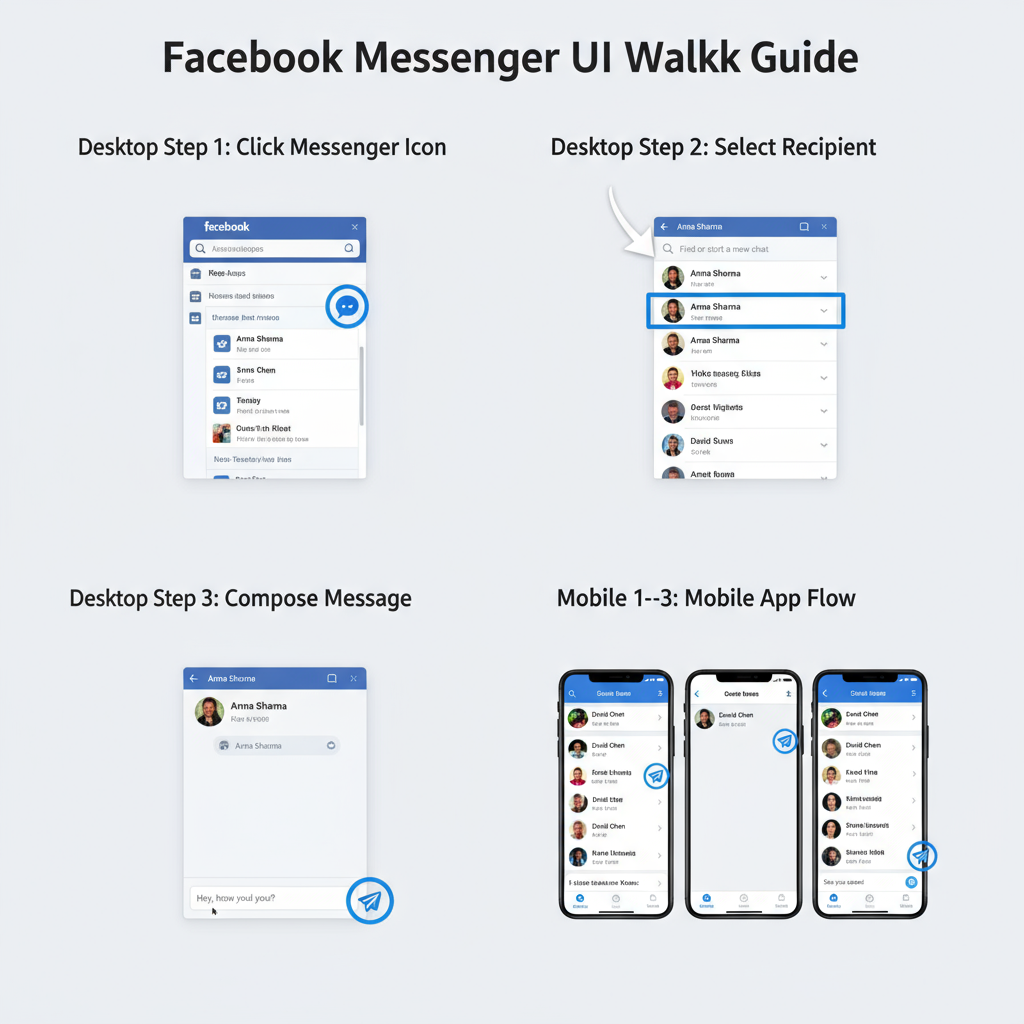
Introduction to Social Media Acronyms and Why They Matter
In today’s fast-paced digital communication landscape, understanding what DM on Facebook means is essential for both personal and professional interactions. Social media platforms like Facebook, Instagram, and Twitter have developed their own shorthand, filled with acronyms such as DM, PM, LOL, and TBH. These not only streamline communication but also help you connect more efficiently with others online. By mastering these terms, you can navigate Facebook and its Messenger service with greater confidence.
In this guide, we’ll explain what a DM on Facebook is, how it works, and best practices for using it effectively.

---
Definition of DM and Its Origin in Online Communication
A DM (Direct Message) is a private message sent from one user to another through a social media platform. The term gained popularity on Twitter in the early 2000s and soon became a standard feature across various networks, including Instagram, LinkedIn, and Facebook.
DMs emerged to fulfill the need for one-to-one or small-group communication that is separate from public posts or comments. They allow the exchange of private conversations, media files, links, and personal details without sharing them with the broader audience.
---
How DMs Work on Facebook: Messenger Integration
On Facebook, DMs are powered primarily by Messenger, the platform’s integrated chat system. Here’s how it functions:
- Sending a DM to a Facebook friend routes it directly to their Messenger inbox, accessible via mobile, desktop browser, or the Messenger app.
- Messages to non-friends typically land in their Message Requests folder.
- Facebook DMs support text, images, videos, links, stickers, GIFs, voice clips, and even video calls.
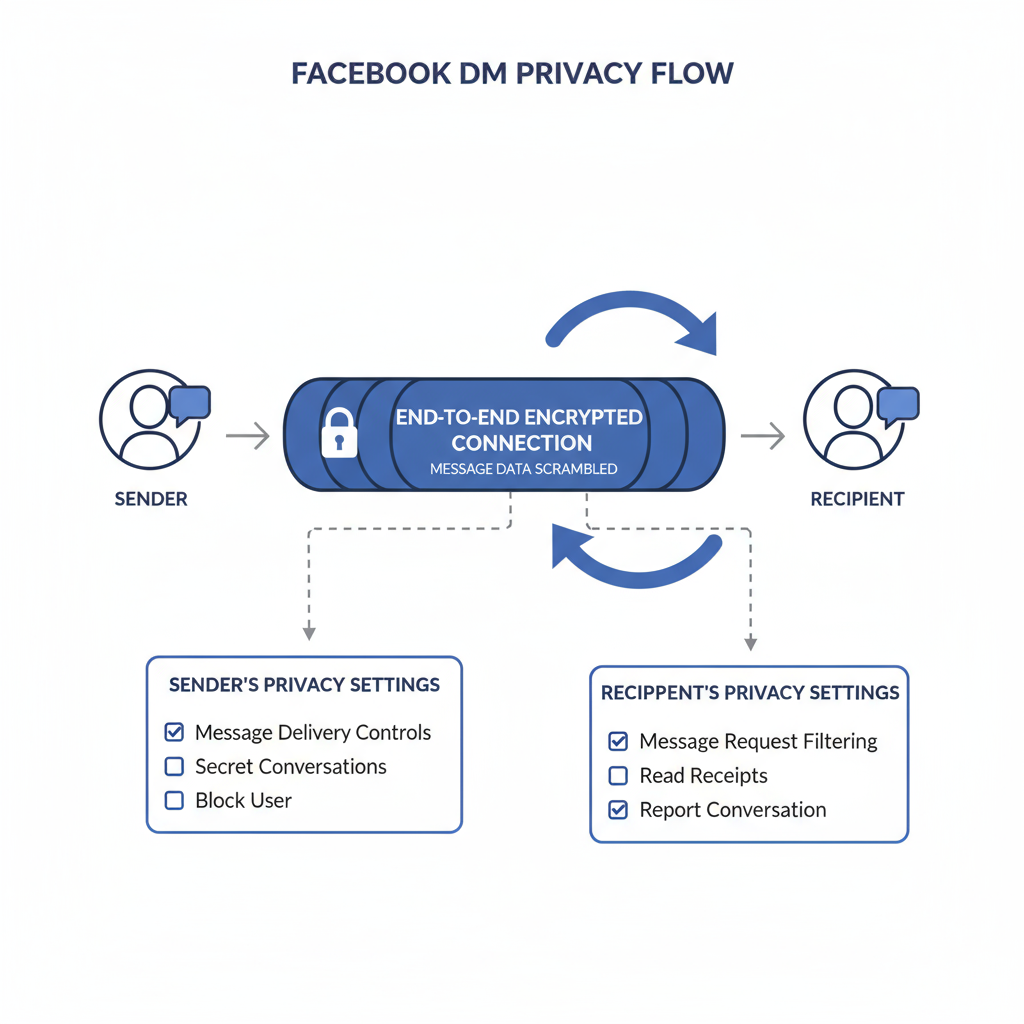
Because Messenger is integrated across Facebook’s ecosystem, your DM experience is seamless whether you use the desktop version, mobile browser, or dedicated app.
---
DM vs PM vs Comments
Although “DM” and “PM” (Private Message) are often used interchangeably, there are nuanced differences worth noting:
| Term | Meaning | Visibility |
|---|---|---|
| DM (Direct Message) | Private 1-to-1 or group chat within a platform | Only sender and recipient(s) can see |
| PM (Private Message) | Synonym for DM; term more common in forums/older platforms | Only sender and recipient(s) can see |
| Comment | Public or semi-public response to a post | Anyone with access to the post can see |
---
Step-by-Step Guide: How to Send a DM on Facebook
Sending a DM is straightforward, but steps vary slightly on desktop and mobile.
On Desktop
- Log in to Facebook in your browser.
- Click the Messenger icon (speech bubble) in the top-right.
- Search for the person’s name.
- Select their profile from the dropdown.
- Type your message.
- Press Enter or click the send icon.
On Mobile (Messenger App)
- Open the Messenger app.
- Tap the search bar.
- Enter the recipient’s name.
- Tap their chat.
- Type your message and tap the send arrow.
---
Privacy and Security Tips for Facebook DMs
While DMs are meant to be private, you should remain mindful of security:
- Check Message Requests: Messages from unknown senders go here.
- Avoid phishing links: Don’t click suspicious messages.
- Set privacy controls: Go to Settings > Privacy > Message Delivery to limit who can contact you.
- Report inappropriate content: Use the built-in Report feature in Messenger.
---
When to Send a DM vs Post Publicly
Choosing between a DM and public post depends on intent and privacy:
Use a DM When:
- Sharing personal contact details
- Handling sensitive customer service issues
- Sending confidential project updates
Use a Public Post When:
- Broadcasting event announcements
- Sharing memes or inspirational quotes
- Encouraging group discussion
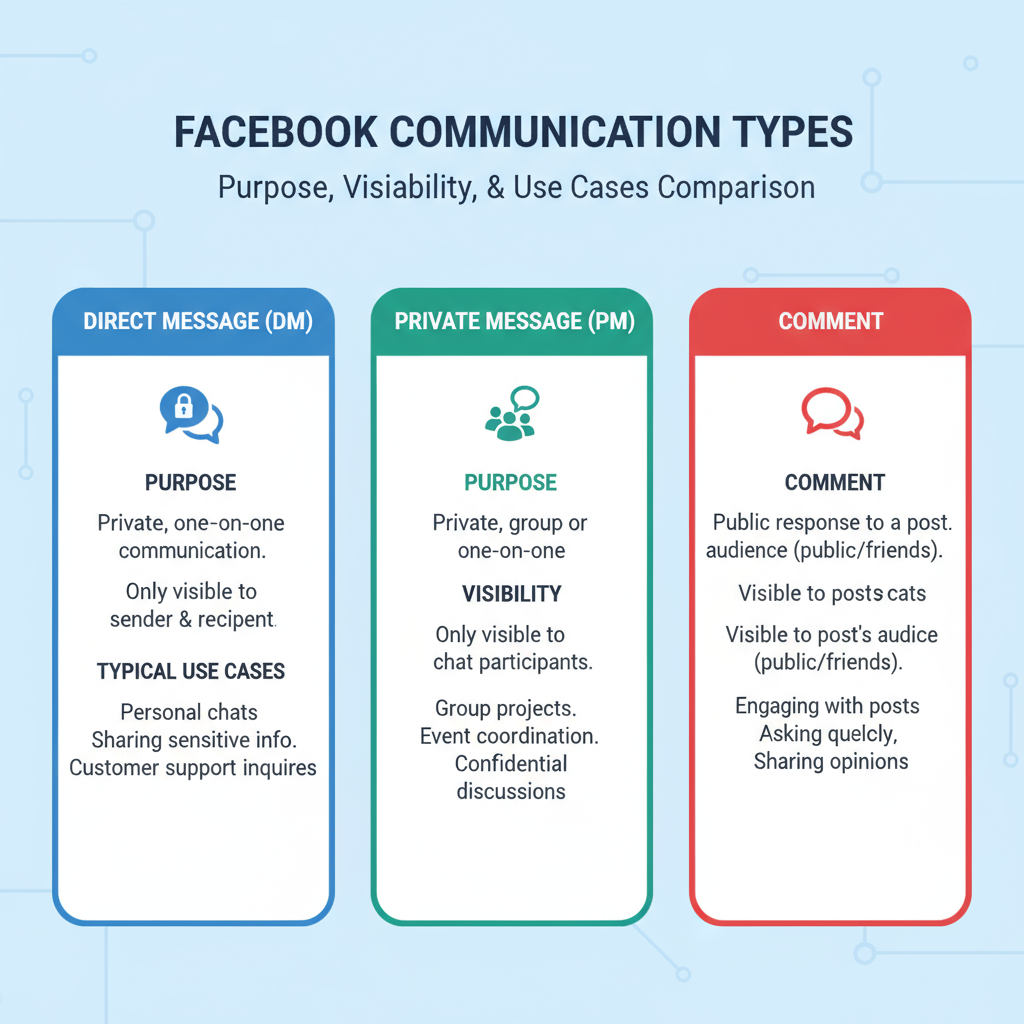
---
Facebook DM Etiquette and Common Mistakes
Good etiquette ensures your messages are well-received.
Do:
- Ask before sending large attachments.
- Keep your language clear and professional for work-related chats.
- Respect the recipient’s availability.
Don’t:
- Spam multiple messages or promotions.
- Send unrequested media or voice notes to strangers.
- Use ALL CAPS excessively.
---
Business and Marketing Applications for Facebook DMs
Facebook DMs can serve as a critical channel for brands:
- Customer Support: Resolve issues in real-time.
- Sales Outreach: Follow up on comments and inquiries.
- Exclusive Offers: Provide coupons to loyal customers directly.
- Collect Feedback: Request reviews in a private setting.
Pro Tip: Integrate Messenger with CRM tools for a scalable service experience.
---
Troubleshooting Common DM Problems
Message Requests
Check this folder for messages from people outside your friend list.
Blocked Messages
If a recipient blocks you, your message won’t be delivered — and you shouldn’t try to bypass this block.
Non-Delivery or Glitches
When DMs fail, try:
- Restarting Messenger
- Verifying your internet connection
- Updating to the newest version of the app
---
Final Recap and Quick FAQ
We’ve broken down what DM on Facebook means, its uses, etiquette, business applications, and troubleshooting steps. Remember:
- DM = Direct Message
- Powered by Facebook Messenger
- Ideal for private, targeted communication
- Follows privacy guidelines and etiquette for best results
Quick FAQ:
Q: Are Facebook DMs encrypted?
A: Messenger offers Secret Conversations with end-to-end encryption; standard chats are encrypted in transit.
Q: Can I DM non-friends?
A: Yes — these go to Message Requests.
Q: How many recipients can be in a group DM?
A: Multiple participants are allowed, but very large groups may trigger spam checks.
---
By understanding what DM on Facebook means and how to use it, you can communicate more effectively, avoid common mistakes, and even leverage it for professional success.
Ready to put this into practice? Open Messenger today and start a conversation the right way.

